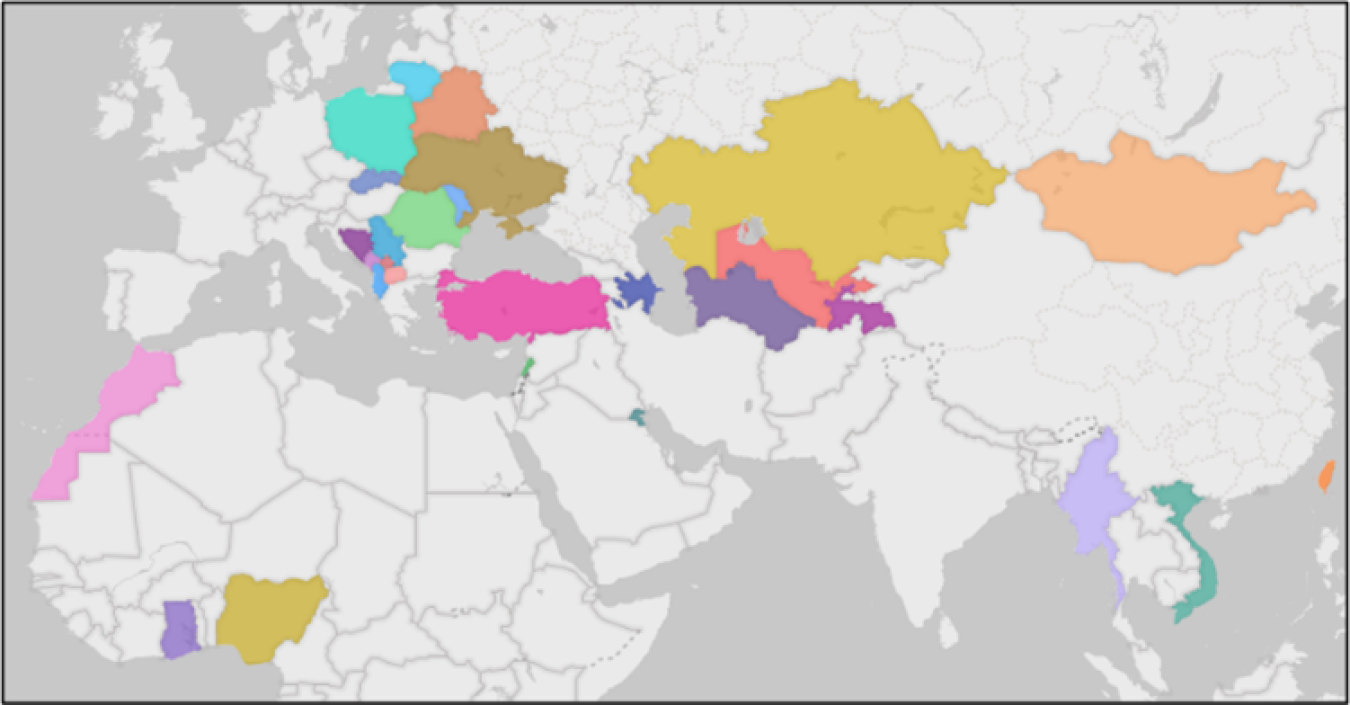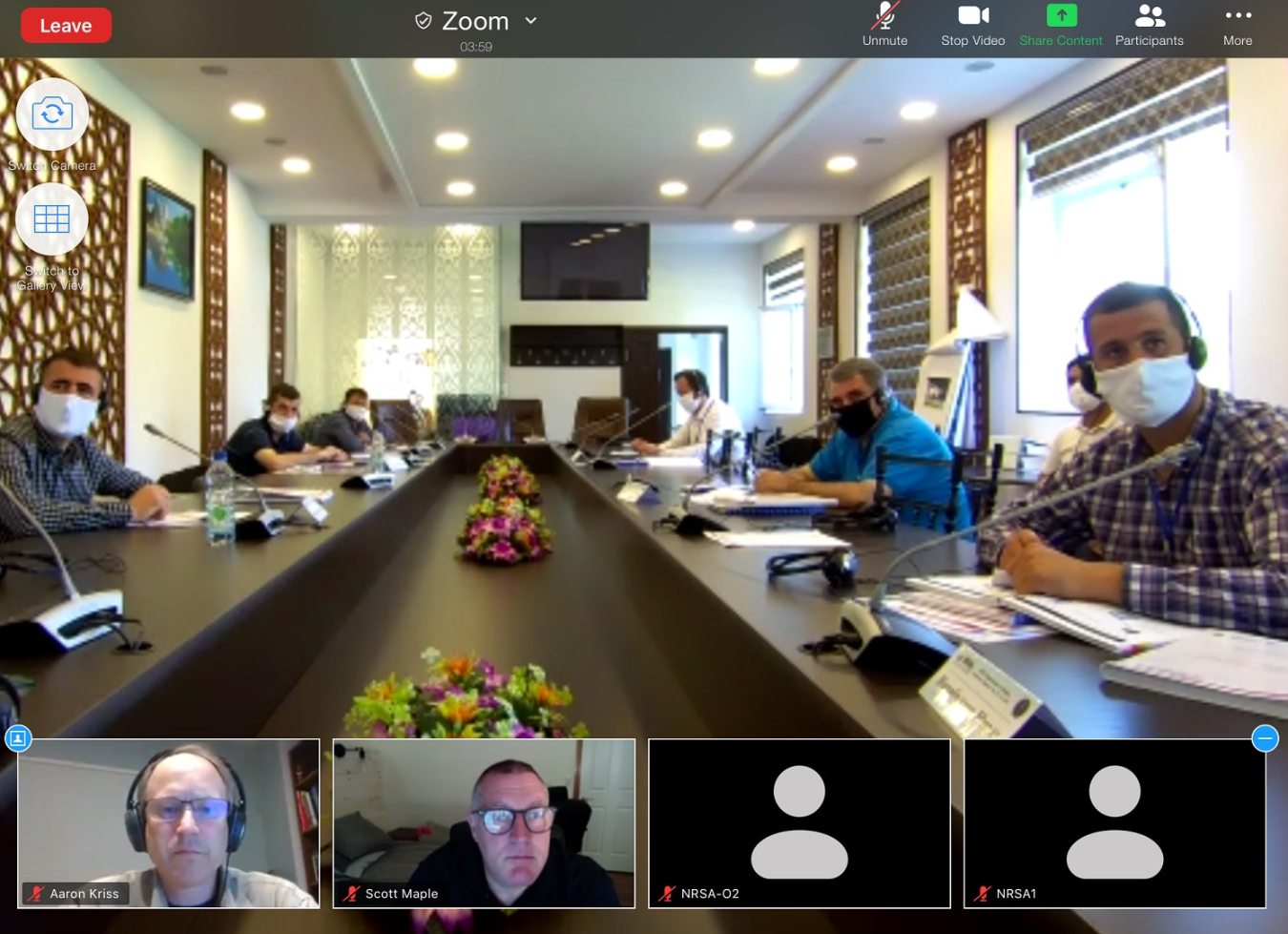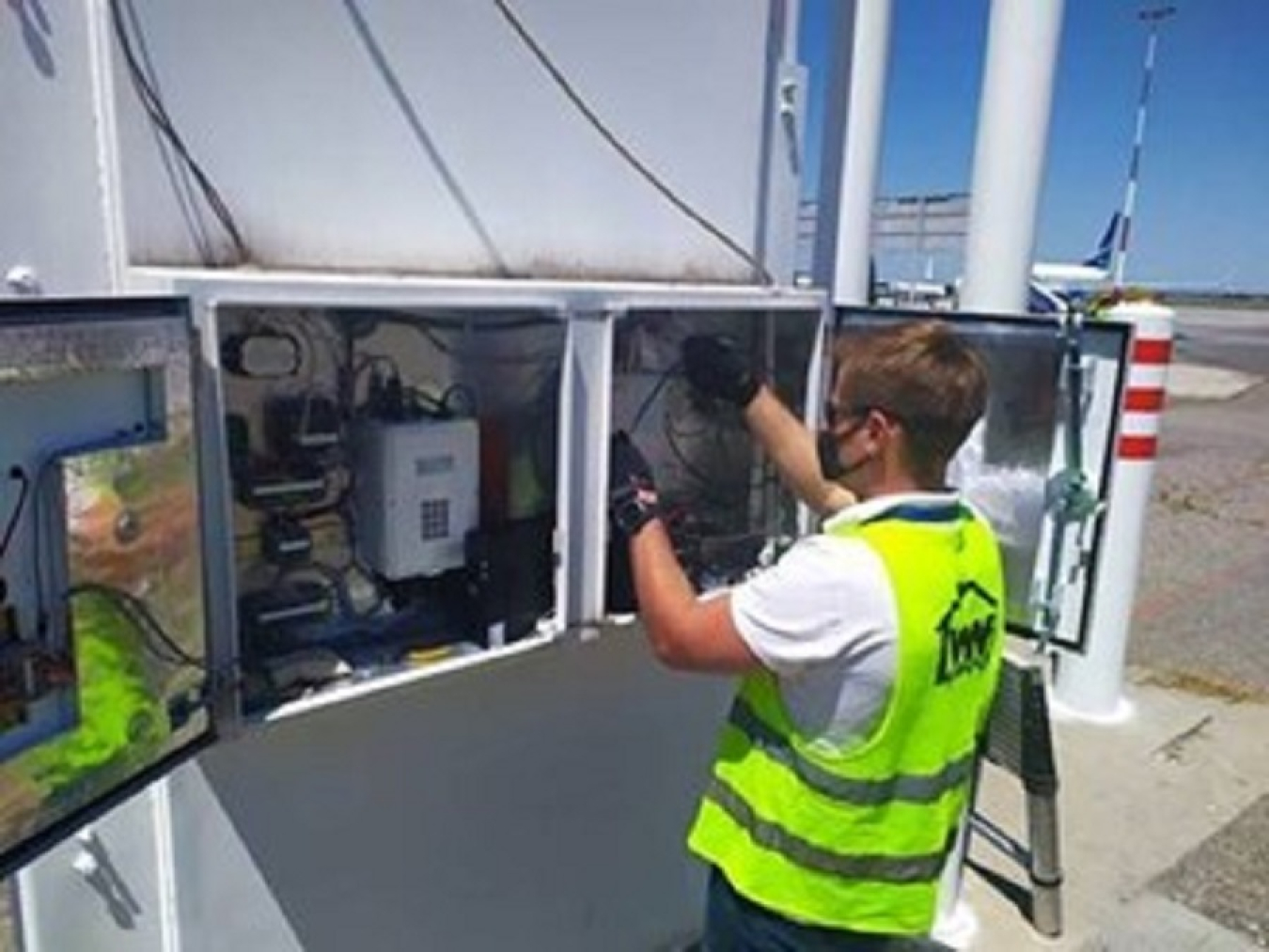The Office of Nuclear Smuggling Detection and Deterrence (NSDD) has adjusted the way it does business during the pandemic.
National Nuclear Security Administration
May 21, 2021
One of NNSA’s key missions is detecting, disrupting, and investigating the smuggling of nuclear and radioactive material before it can be used in an act of terrorism. COVID-19 disrupted the way that mission was conducted, but by leveraging creative plans, technology, and its great relationships with international partners, the Office of Nuclear Smuggling Detection and Deterrence (NSDD) has adjusted the way it does business during the pandemic. The creative solutions it found address short-term challenges, sustain its important relationships with partner countries, and facilitate continued engagement until such time that robust, on-the-ground engagement can resume.
“NSDD’s proactive attitude allows them to adapt operations to successfully meet its national security obligations,” said Kasia Mendelsohn, Acting Deputy Administrator for the Office of Defense Nuclear Nonproliferation.
The pandemic begins

The COVID-19 pandemic disrupted global travel for NSDD, which works directly with international partners to accomplish its counter-smuggling mission. Although the unlawful movement of nuclear and/or radioactive material is not an everyday security event, the high potential consequence of terrorists acquiring it combined with potential security vulnerabilities arising from the pandemic make this mission even more important.
Most of NSDD’s work takes place overseas, often in remote, dangerous, and uncontrolled areas that have become nexuses for smuggling or terrorist activity. The ability to work in these regions enables NSDD to successfully assist with detecting and interdicting dangerous material far from the shores of the United States. However, NSDD’s work across the waves also presented a range of additional safety and security challenges that manifested under the COVID-19 global pandemic.
Only a month after the United States evacuated its staff from the Wuhan Consulate in China, in early March, both U.S. embassies and foreign governments began informing NSDD that travel across borders was going to be almost impossible.
NSDD’s international focus left it particularly vulnerable to uncertainty given the safety, security, and other challenges that manifested under the pandemic:
- March 4, 2020, as borders around the world began to lock down, NSDD still had staff and contractors at 40 jobsites in 28 countries. Each site had dozens of local subcontractors and office staff.
- By March 10, NSDD’s leadership decided to withdraw and demobilize its first in-country team.
- Over the next 45 days, NSDD demobilized and evacuated almost all non-local staff from its overseas jobsites.
The creativity of NSDD’s people, and their drive to solve problems in support of their national security mission is one of our greatest strengths.
NSDD’s “forward deployed” staff remained behind to work through the pandemic at their respective U.S. embassy or jobsite, in accordance with local, embassy, and NNSA guidance. Although NSDD moved quickly, some team members were able to depart countries just before the borders closed. Some team members caught the last chartered flights home, others scrambled onto commercial flights through multiple countries, and others even rented cars to drive out as frontiers closed around them.
NSDD’s work is often in high-risk areas, and pre-planned evacuation routes are standard parts of its health, safety, and security planning. This contingency planning made NSDD resilient enough to get its overseas staff safely home.
“The creativity of NSDD’s people, and their drive to solve problems in support of their national security mission is one of our greatest strengths,” Mendelsohn said.

The work continues
While it demobilized and evacuated its in-country staff, NSDD leadership went to work to redesign its training, workshops, and exercises for virtual operations, and developed remote oversight plans – establishing procedures to maintain oversight of ongoing overseas projects while continuing to meet the program’s national security objectives under the pandemic’s constraints.
After countless hours, the first plan was finalized March 18, just 10 days after its first team was evacuated. Remote oversight plans outlined remaining tasks, risks, and paths forward. Each one was jobsite specific and adapted as necessary to align with the constant changes in local and government COVID-related restrictions. The remote oversight plans helped NSDD successfully control its projects remotely, although, the constant changes in restrictions continue to present challenges.
Fortunately, much of the construction that NSDD conducts occurs outdoors, which allows ample space for social distancing. The program instituted strict adherence to U.S. safety standards – including the use of personal protective equipment at worksites – and helped quickly normalize face coverings, distancing, and increased sanitization requirements. NSDD’s longstanding relationships with its international partners aided in the approval of using video, photographic, and other remote monitoring tools at worksites (including in sensitive areas). During periods of lockdown, where almost all movement was restricted, U.S. staff continued working on administrative tasks such as permitting, engineering, and design work.
Within every challenge there is opportunity. The COVID-19 pandemic has taken an unimaginable toll, but that terrible cost has also necessitated a drive to be creative, to rise, and to overcome.
On the horizon
NSDD’s FY2021 activities are progressing well. The tempo of new projects is nearly the same pace as it was before the pandemic. However, long term this pace may not be sustainable. The office has adjusted by holding virtual meetings and events at all hours to accommodate the time differences with foreign partners, even though this change has required longer workdays and regular night shifts. It has also demanded significantly more advanced planning, preparation, virtual run-throughs – and the agility to accept technical glitches to minimize work impacts and keep the mission moving forward. While NSDD’s engagements have been good in the short term, appropriately resuming in-person activities will be key to advancing this international security cooperation.
NSDD’s leaders anticipate international travel restrictions and other pandemic-related disruptions to continue to affect projects into 2022. Nonetheless, the office will incorporate lessons learned over the last year and continue to adapt its work to meet new challenges.
“Within every challenge there is opportunity. The COVID-19 pandemic has taken an unimaginable toll, but that terrible cost has also necessitated a drive to be creative, to rise, and to overcome,” Mendelsohn said.

